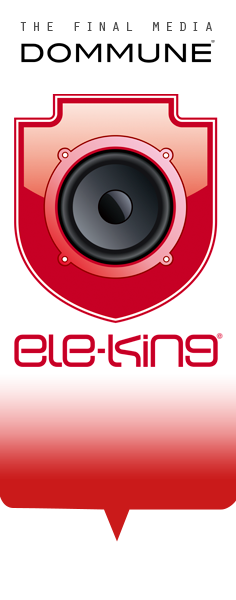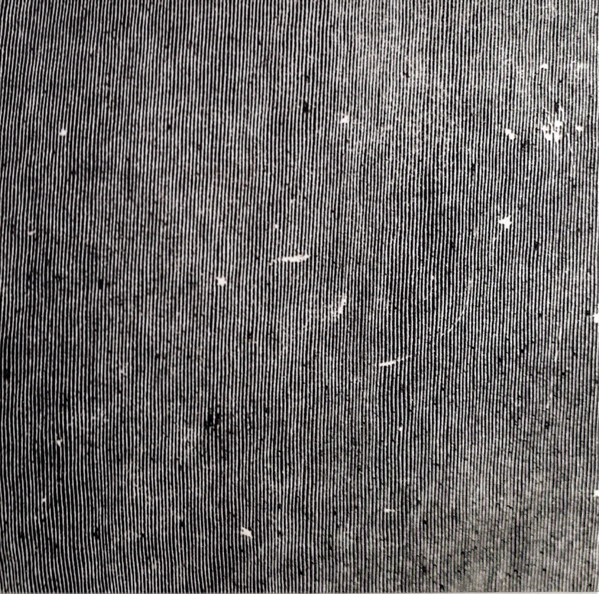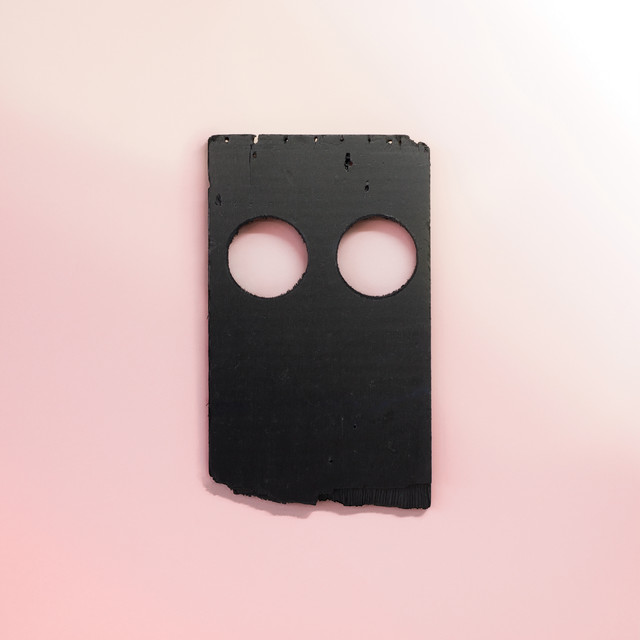MOST READ
- interview with xiexie オルタナティヴ・ロック・バンド、xiexie(シエシエ)が実現する夢物語
- Chip Wickham ──UKジャズ・シーンを支えるひとり、チップ・ウィッカムの日本独自企画盤が登場
- Natalie Beridze - Of Which One Knows | ナタリー・ベリツェ
- 『アンビエントへ、レアグルーヴからの回答』
- interview with Martin Terefe (London Brew) 『ビッチェズ・ブリュー』50周年を祝福するセッション | シャバカ・ハッチングス、ヌバイア・ガルシアら12名による白熱の再解釈
- VINYL GOES AROUND PRESSING ──国内4か所目となるアナログ・レコード・プレス工場が本格稼働、受注・生産を開始
- Loula Yorke - speak, thou vast and venerable head / Loula Yorke - Volta | ルーラ・ヨーク
- interview with Chip Wickham いかにも英国的なモダン・ジャズの労作 | サックス/フルート奏者チップ・ウィッカム、インタヴュー
- interview with salute ハウス・ミュージックはどんどん大きくなる | サルート、インタヴュー
- Kim Gordon and YoshimiO Duo ──キム・ゴードンとYoshimiOによるデュオ・ライヴが実現、山本精一も出演
- Actress - Statik | アクトレス
- Cornelius 30th Anniversary Set - @東京ガーデンシアター
- 小山田米呂
- R.I.P. Damo Suzuki 追悼:ダモ鈴木
- Black Decelerant - Reflections Vol 2: Black Decelerant | ブラック・ディセレラント
- Columns ♯7:雨降りだから(プリンスと)Pファンクでも勉強しよう
- Columns 6月のジャズ Jazz in June 2024
- Terry Riley ——テリー・ライリーの名作「In C」、誕生60年を迎え15年ぶりに演奏
- Mighty Ryeders ──レアグルーヴ史に名高いマイティ・ライダース、オリジナル7インチの発売を記念したTシャツが登場
- Adrian Sherwood presents Dub Sessions 2024 いつまでも見れると思うな、御大ホレス・アンディと偉大なるクリエイション・レベル、エイドリアン・シャーウッドが集結するダブの最強ナイト
Home > Reviews > Album Reviews > Low- Hey What
ロックはもはや若い音楽形態ではない。幼少期、不機嫌な十代、反抗的な青年期に中年の危機などを経て、そのパワーの大部分が、サウンド、コード、習慣やダイナミクスなどの馴染み深いものからきている。ロック・ミュージックのエモーショナルなビートは、私たちの中に焼き付けられており、簡単かつ快適に反応してしまうのだ。ロック・ミュージックを聴くことは帰郷することに似ている。
しかし、ロックのパワーの多くは、驚き、スリル、そして衝撃を与えるなどの能力からもきている。そのため、ロックで経験する親しみやすさは、常に陳腐になりやすいという脅威にさらされてもいる。つまり、ロック・ミュージックのどこかの一角は、常に自己破壊と再構築の過程にあり、自分を見失い、手探りしながら家路を辿り、馴染み深い形に行き着き、思わぬ方法や新鮮な角度から新しい意味を見出しているのだ。
Lowの2018年のアルバム『Double Negative』では、色々なことがとりあげられていたと思うが、そのひとつが、ロック・ミュージックがそれ自身を見失い、壊されていくということだった。かつての、穏やかで死者を悼むかのような哀愁のメロディやハーモニーは、デジタル・ディストーションの猛吹雪の中で聴かれようともがき、ヴォーカルは遠く不明瞭で、焦点からずれたり、消えたりしながら、曲たちはひとつにまとまろうとしつつ、その形は絶えずカオスの中に溶け込んでいった。
その歪んだパレットが『Hey What』の出発点となり、オープニング・トラックの“White Horses”が不快な紙やすりのような唸りで幕を開けるが、ディストーションはすぐに短い、鋭く突くパーカッシヴな音に転換し、くっきりとしたクリアなハーモニーで、「Still, white horses takes us home(それでも、白馬が私たちを家に連れ帰ってくれる)”」と宣言する。『Double Negative』ではまとまりにくかった曲たちが『Hey What』では確実にノイズとディストーションの統制がとれており、それらを大胆でパワフルなアレンジの武器として配備しているのだ。
Lowはこれまでにも、2002年の『Trust』の控えめなゴシック・グランジから〈サブ・ポップ〉からのデビュー盤となった激しく意気揚々としたロックの『The Great Destroyer』への移行のように、似たようなサイクルを繰り返してきた。これらのアルバムでは、ほとんどギター・ロックという馴染み深いパレットの枠組みのなかで操作されてきたが、2021年のLowは、楽器のサウンドの原形をとどめないほど、歪ませながらも、馴染みのロック風の結末のためにこれを利用している。SIDE Aは7分に及ぶ “Hey” で締めくくられるが、ここでは、脈打つ海底のノイズの壁が、反復する単一のヴォーカル・フックを包み込み、金目当ての制作者の手にかかれば、アメリカのティーンエイジャーのドラマのモンタージュのサウンドトラックとしても使えるようなものになっていたかもしれない。
SIDE Bは“Days Like These”のヴォーカルのハーモニーとシンプルなオルガンではじまり、いまでは馴染みとなったノイズが打ち付けると、腹のなかで雷が鳴り響き、拳を振りあげる勢いで着地する。ほとんど安っぽくきこえてしまうが、それはやむを得ない。ロックの動きだからだ──観客は、イントロが始まると、銃を構えたロックンロール・バンドのギタリストがリフを繰り出すためにステージ上をうろつくのを待っている。Lowはその期待に応え、ロックのショーマンとして、正確にタイミングを計っているのだ。“More”ではそれがさらに顕著となり、いまではデュオとなった彼らの、ねじれた機材を通じてスコールのように合成される歪んだリフで聴衆に襲いかかる。
『Double Negative』は、よくトランプ時代に渦巻くカオスとアメリカの国境を遥かに超えて広がる、すべてが崩壊していく無力感を表現しているといわれた。そのような破壊的な力に直面しても美しい何かを守り抜こうと苦闘する彼らの遠方の声には慰めがあり、『Hey What』はある意味、次のステップのように感じられる。ある種の解放感やカオス、敗れたというよりも利用されたこと、そして再びコントロールする能力を取り戻すという感覚だ。それをポジティヴととらえるのは、あまりにも単純すぎる──暗闇、悲しさ、絶望、不確かさに喪失感が歌詞に深く通底しており、音楽のもっとも鋭利な部分をもすり切れさせている──だが、少なくとも、馴染み深いロックのパワーが、未知で混乱した、刺激的な方向から新たに形作られていることがわかり、少し希望が持てるような気分になる。
-
Rock is no longer a young musical form. It has been through its childhood, stroppy teenage years, rebellious youth and midlife crisis, and a major part of its power comes from familiarity — of its sounds, chords, conventions and dynamics. The emotional beats of rock music are baked into us and we respond easily, comfortably to its manipulations. Listening to rock music is like coming home.
But a lot of rock’s power also comes from its ability to startle, thrill and electrify — experiences that rock’s ever-present familiarity always threatens to undermine in the form of cliché. This means that some corner of rock music is always in the process of destroying itself and reconstructing, losing itself and feeling its way back home, reaching those familiar shapes in unexpected ways or from fresh angles, giving them new meanings.
Low’s 2018 album Double Negative was probably about many things, but one thing it was about was rock music losing itself, being broken down. Melodies and harmonies that would have been gentle and mournful in the past here struggled to be heard amid blizzards of digital distortion, vocals distant and indistinct, fading in and out of focus as the songs struggled to hold themselves together, their forms constantly dissolving in the chaos.
That distorted palette is the jumping off point for Hey What, with opening track White Horses kicking the album off with a harsh sonic sandpaper growl, but the distortion quickly resolves itself into short, sharp, percussive stabs, the vocals kicking in in crisp, clear harmonies declaring “Still, white horses take us home”. Where the songs on Double Negative fought to hold themselves together, Hey What has a much more assured rein on the noise and distortion, deploying them as weapons in the service of bold, powerful arrangements.
Low have been through similar cycles before, with the transition from the subdued gothic grunge of 2002’s Trust to the explosive rock swagger of their Sub Pop debut The Great Destroyer. Where those albums operated mostly within the familiar palette of guitar rock, the Low of 2021 have twisted the sounds of their instruments out of all recognition, but they are still using it to recognisable and familiar rock ends. Side A closes on the seven-minute Hey, which wraps its pulsing wall of submarine noise around a single, repeated vocal hook that in more mercenary production hands could have soundtracked a sentimental montage sequence in an American teen drama. The second side then kicks off with the vocal harmonies and simple organ of Days Like These, and when the now-familiar noise storm finally hits, it lands with a thunder rumble in the gut and a fist-in-the-air rush. It feels almost cheesy, but that’s because it is: it’s a rock move — the audience knows it’s coming, like watching the gunslinger guitarist of a rock’n’roll band prowling the stage as an intro builds, waiting for him to drop the riff. Low play with these expectations, timing the moment of release with rock showmen’s precision. They’re even more explicit on More, assaulting the listener with gnarled riffs delivered through the synthetic squall of the now-duo’s twisted machinery.
Double Negative was often described as articulating the spiralling chaos of the Trump era and the broad sense extending far beyond America’s borders of feeling powerless as everything falls apart. There was comfort in those distant voices struggling to hold together something beautiful in the face of destructive forces, and Hey What feels in a way like a next step: a sense of release and of the chaos, if not defeated, rather harnessed, a sense of control regained. To describe it as positive would be an oversimplification — darkness, sadness, desperation, uncertainty and loss run deep through the lyrics and still fray even the music’s most confident edges — but it feels at least a little hopeful, finding the familiar power of rock shapes anew from a strange, disorientating and stimulating direction.
イアン・F・マーティン
ALBUM REVIEWS
- Loula Yorke - speak, thou vast and venerable head/ Loula Yorke - Volta
- Actress - Statik
- Black Decelerant - Reflections Vol 2: Black Decelerant
- High Llamas - Hey Panda
- The Stalin - Fish Inn - 40th Anniversary Edition -
- KRM & KMRU - Disconnect
- Cornelius - Ethereal Essence
- Kronos Quartet & Friends Meet Sun Ra - Outer Spaceways Incorporated
- Martha Skye Murphy - Um
- Mouchoir Étanche - Le Jazz Homme
- Taylor Deupree - Sti.ll
- John Cale - POPtical Illusion
- Amen Dunes - Death Jokes
- A. G. Cook - Britpop
- James Hoff - Shadows Lifted from Invisible Hands


 DOMMUNE
DOMMUNE

